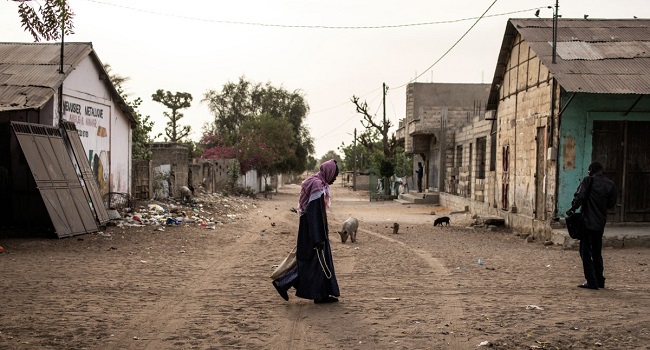IN NDIAGANIAO, a remote village in Senegal’s agricultural region, men from around the country flock to congratulate the father of president-elect Bassirou Diomaye Faye.
Speaking from the hallway of the pastel-coloured family home and dressed in a silk blue boubou, 84-year-old Samba Faye says he is “happy and proud” of his son.
“He came to see me before the election, crouched at my feet and asked that I pray for this success,” Faye said as men come up to greet him while others hand him buzzing telephones.
“We could never have imagined that he would one day become president of the republic even though we prayed that he would go as far as possible in his career,” added Faye.
“Bassirou has always been a serious and ambitious boy.”
Just 10 days after he was freed from prison, the anti-establishment candidate Diomaye — who comes from an educated but modest family background — won the presidential election in the first round, gaining 54.28 percent of the vote.
The 44-year-old, who has said he wants a “break” with the current political system, is set to become the youngest president in Senegal’s history.
“I asked him to do everything to satisfy the Senegalese people” who “have high hopes” of him, Faye, who worked in the agricultural sector training farmers how to use new equipment, told AFP.
“I told him that a great responsibility now rests on his shoulders.”
Outside the house, little girls play barefoot in the dusty allies in front of buildings from another age where old wooden doors and others made of rusty metal still stand.
Across Ndiaganiao, where Diomaye won 80 percent of the vote, walls and dilapidated buildings have his name and that of his mentor Ousmane Sonko written in white paint.
The uncle of the new president and his namesake Diomaye Faye said that running as leader wasn’t his nephew’s intention.
“It wasn’t actually his goal. He never really intended to get involved in politics but his friend Ousmane Sonko… drew him into politics,” said his uncle, a political science professor in the United States who said he spent two years with pan-Africanist leader Thomas Sankara from 1985 to 1987.
“The main advice we can give him is… remaining himself, being humble and keeping his ability to listen,” the uncle added.







